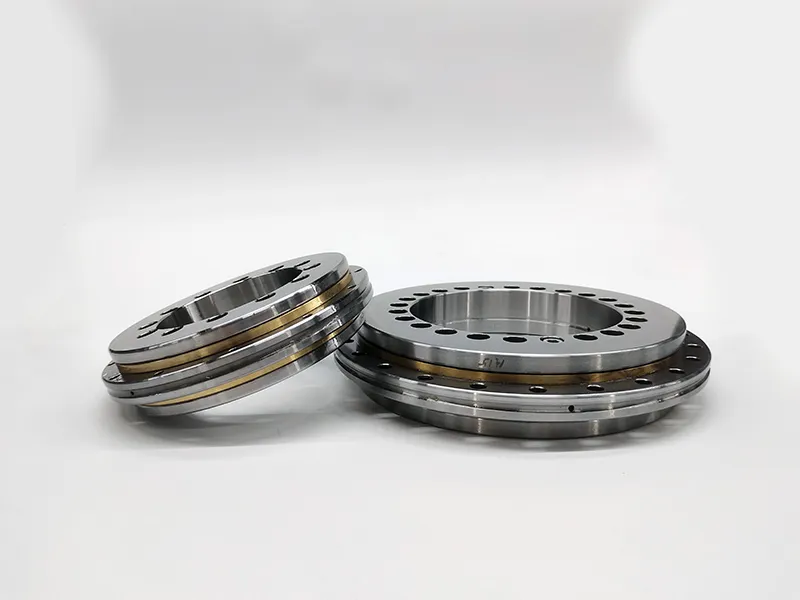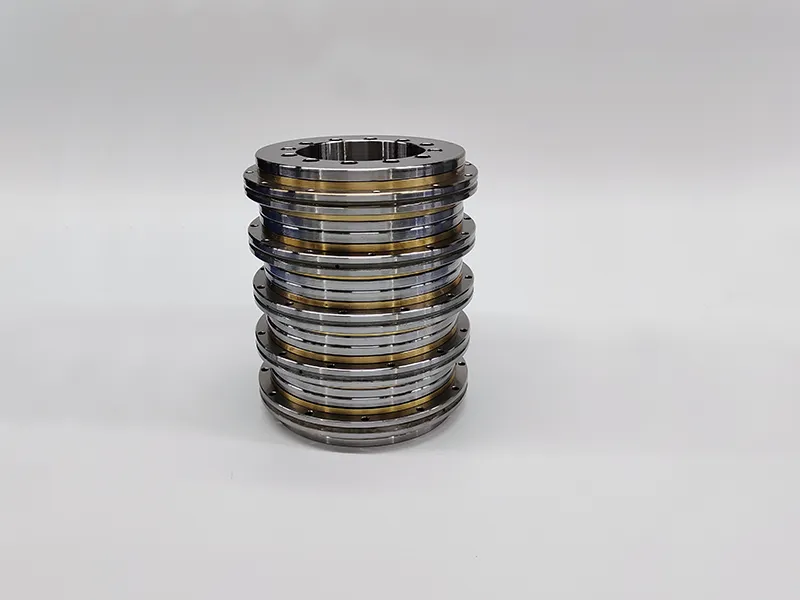A rotary table bearing, often used in applications requiring precision rotation, such as machine tools and rotary tables, has a specialized structure to support and facilitate smooth rotational movement. Here is an overview of the key components and structure of a rotary table bearing.
1. Bearing Type
Rotary table bearings are typically cross-roller bearings or YRT (Yaw and Roll Table) bearings, designed to handle axial, radial, and moment loads simultaneously.
2. Components and Structure

Inner and Outer Rings:
Inner Ring: Mounted on the stationary part of the rotary table, providing the raceway for the rolling elements.
Outer Ring: Attached to the rotating part of the table, also serving as a raceway for the rolling elements.
Rolling Elements:
Cross-Roller Bearings: Use cylindrical rollers arranged perpendicular to each other in a cross pattern, which allows them to handle high axial and radial loads as well as tilting moments.
YRT Bearings: Comprise an axial needle roller and cage assembly, a radial cylindrical roller, and two axial cylindrical roller and cage assemblies, ensuring high rigidity and precision.
Cage:
Holds and guides the rolling elements, ensuring they remain evenly spaced and reducing friction.
Seals:
Installed on both sides of the bearing to prevent contamination and retain lubrication, enhancing the bearing's lifespan and performance.
Preload Adjustment:
Many rotary table bearings come with a mechanism to adjust preload, ensuring optimal stiffness and minimizing deflection during operation.

3. Design Features
High Precision: Designed to maintain accurate positioning with minimal deflection, crucial for precision applications like CNC machines and indexing tables.
High Load Capacity: Capable of supporting heavy axial, radial, and moment loads due to the robust design and high number of rolling elements.
...
For more detailed information about the rotary table bearing structure, please click here: https://www.boyingbearing.com/en/a/news/rotary-table-bearing-structure.html